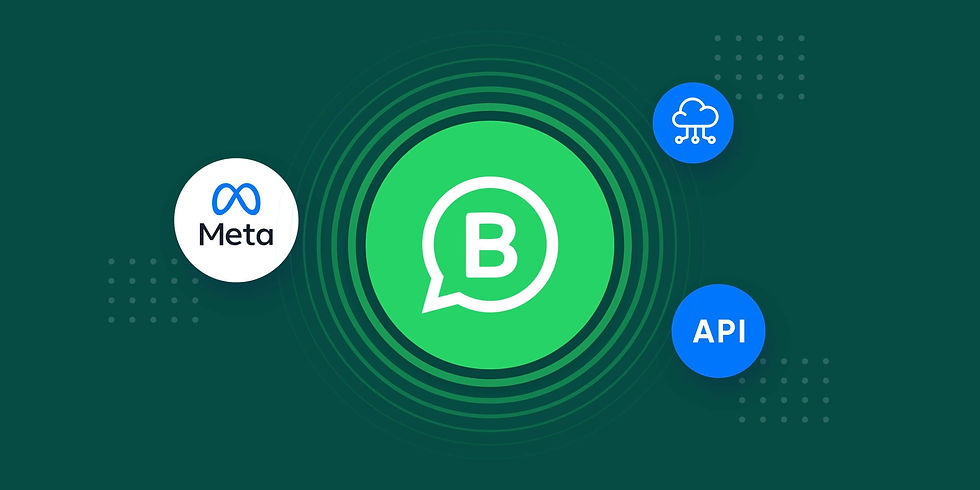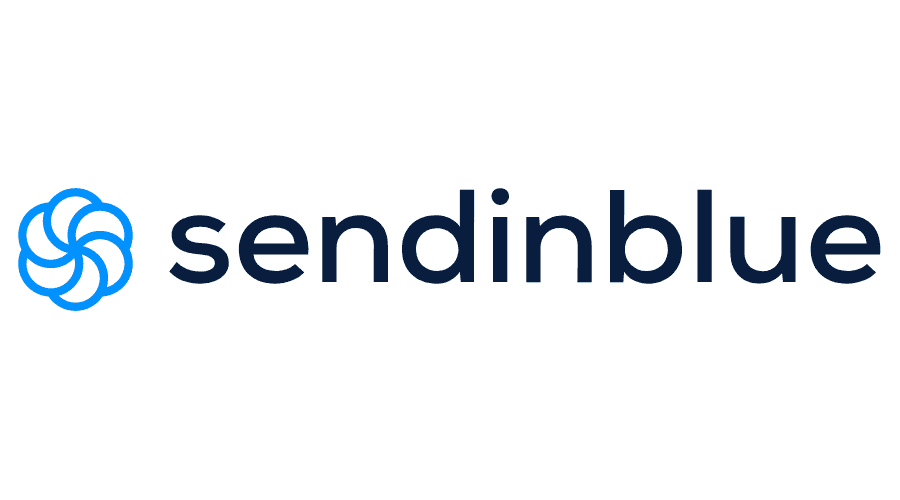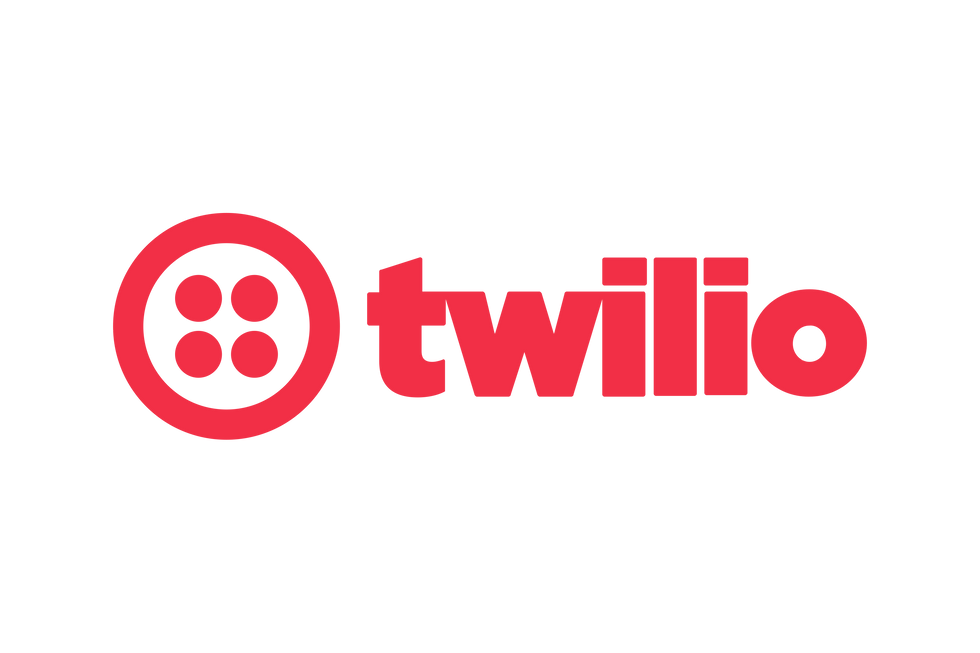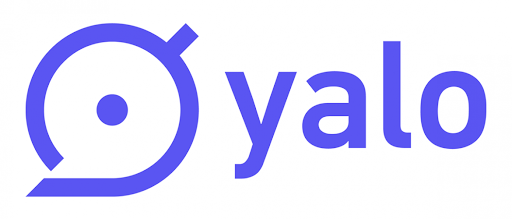Top 5 Whatsapp Marketing Tools
- Uttiya Roy
- Nov 20, 2023
- 4 min read

Leveraging WhatsApp for effective marketing requires more than just a presence on the platform. This is where WhatsApp marketing tools come into play.
These tools transform how businesses interact with customers, offering functionalities ranging from automated messaging and chatbots to advanced analytics and CRM integration. Whether you're a small business owner or part of a large corporation, the right WhatsApp marketing tool can significantly enhance your customer communication strategy, making your marketing efforts more efficient and impactful.
1. WhatsApp Business API

WhatsApp Business API is a sophisticated solution for medium to large businesses aiming to streamline and enhance customer communication on a large scale. This tool is designed to integrate seamlessly into existing business systems, providing a robust platform for personalized, secure, and efficient customer interactions.
Pros:
Scalability: Ideal for handling a high volume of messages, making it perfect for larger businesses with extensive customer bases.
Automation Capabilities: Automating responses and sending out mass notifications saves time and resources.
Customization: Allows businesses to tailor their communication strategies with custom messaging flows and templates.
Integration with Existing Systems: CRM and other business systems can be integrated for seamless customer data management.
Advanced Security: Ensures secure communication with end-to-end encryption, which is crucial for maintaining customer privacy and trust.
Cons:
Complex Setup: Requires technical expertise for setup and integration, which might be challenging for businesses without an IT team.
Cost: Potentially higher costs associated with API access, particularly for small businesses or startups.
Limited User Interface: Lacks a dedicated user interface, relying on third-party solutions for message management.
Approval Process: Businesses must go through an approval process to use the API, which can be time-consuming.
2. WATI

WATI (WhatsApp Team Inbox) is a user-friendly platform designed to empower businesses with efficient WhatsApp communication. It enhances customer engagement through automated responses, team collaboration, and simple CRM integration. Ideal for small to medium-sized businesses, WATI offers an accessible way to manage WhatsApp conversations at scale.
Pros:
Ease of Use: Boasts a straightforward, intuitive interface that requires minimal training.
Team Collaboration: Enables multiple team members to manage and respond to customer inquiries simultaneously.
Automated Responses: Allows setting up of automated greetings, replies, and away messages to ensure quick customer interactions.
CRM Integration: Easily integrates with various CRM systems, streamlining customer data management.
Broadcasting Feature: Offers the ability to send mass messages to segmented customer lists, enhancing marketing campaigns.
Cons:
Limited Customization: Some users may find the customization options for automated responses and message templates slightly restrictive.
Dependence on WhatsApp Approval: Similar to other tools, using certain features requires approval from WhatsApp, which can be a slow process.
No Advanced Analytics: The analytics provided are somewhat basic, which might not suffice for businesses seeking in-depth insights.
Scalability Concerns: While great for small to medium businesses, larger organizations might find its features limited for extensive operations.
3. Sendinblue

Sendinblue, widely recognized for its robust email marketing services, extends its prowess to WhatsApp marketing. This tool blends the effectiveness of WhatsApp with the comprehensive marketing capabilities of Sendinblue, offering a multi-channel approach to engage customers. It's particularly suitable for businesses looking to integrate their email and WhatsApp marketing strategies seamlessly.
Pros:
Multi-Channel Marketing: Facilitates a cohesive marketing strategy by integrating WhatsApp with email, SMS, and more.
Automation Features: Advanced automation capabilities allow for the creating of sophisticated, triggered messaging sequences.
Contact Segmentation: Offers detailed contact segmentation options, enabling targeted messaging and personalized customer experiences.
User-Friendly Interface: Known for its intuitive and easy-to-navigate interface, making campaign setup and management straightforward.
Comprehensive Analytics: Provides in-depth analytics to track the performance of WhatsApp campaigns alongside other channels.
Cons:
Learning Curve: The wide range of features might be overwhelming initially, especially for beginners.
Cost Structure: The pricing model can be higher, especially for small businesses with limited budgets.
Limited WhatsApp-Specific Features: While offering a robust platform, some WhatsApp-specific functionalities might be less extensive than specialized WhatsApp marketing tools.
Integration Complexity: Integrating with existing systems, especially for advanced features, may require some technical know-how.
4. Twilio API for WhatsApp

Twilio API for WhatsApp offers a highly flexible and customizable solution for businesses seeking to integrate WhatsApp messaging into their existing systems and workflows. Ideal for companies with specific needs and technical capabilities, this API allows for the creation of tailored communication experiences on WhatsApp, ranging from customer support to targeted marketing campaigns.
Pros:
High Customizability: Provides extensive customization options, enabling businesses to tailor WhatsApp interactions to their needs.
Seamless Integration: Easily integrates with existing business systems, including CRMs, databases, and other communication platforms.
Global Reach: Supports messaging globally, making it an excellent choice for international businesses.
Robust Developer Support: Offers comprehensive documentation and developer resources for building and deploying WhatsApp solutions.
Advanced Features: Supports rich media messages, including images, videos, and documents, enhancing the customer interaction experience.
Cons:
Technical Expertise Required: Demands technical know-how for setup and maintenance, possibly necessitating a dedicated developer team.
Cost Structure: Usage-based pricing can become expensive for businesses with high messaging volumes.
Initial Setup Time: Setting up and customizing the API to suit specific business needs can be time-consuming.
No Built-in User Interface: Lacks a direct user interface for non-developers, relying entirely on custom-built or third-party solutions for message management.
5. Yalo

Yalo emerges as a distinctive player in the WhatsApp marketing landscape, specializing in creating personalized conversational commerce experiences. It focuses on harnessing the power of chat to transform customer interactions into sales opportunities. Ideal for businesses seeking to boost their e-commerce presence via WhatsApp, Yalo offers innovative solutions to engage and convert customers directly within the app.
Pros:
Conversational Commerce Focus: Tailors the shopping experience through personalized, conversational interactions, enhancing customer engagement and sales.
Rich Media Capabilities: Supports the integration of rich media like images, videos, and catalogs within WhatsApp chats, offering a dynamic shopping experience.
Automated Customer Interaction: Employs AI-driven chatbots to automate customer interactions, from product inquiries to order confirmations.
Integration with E-commerce Platforms: Seamlessly integrates with various e-commerce platforms, streamlining the shopping process from chat to checkout.
Data-Driven Insights: Provides valuable analytics and insights into customer behavior, aiding in refining marketing and sales strategies.
Cons:
Niche Focus: Primarily geared towards e-commerce, which might limit its applicability for businesses outside of this sector.
Learning Curve: The range of features and e-commerce integration might require a learning period to fully leverage its capabilities.
Cost Considerations: Pricing may be a factor for small businesses or startups, especially when scaling up usage.
Dependency on WhatsApp Guidelines: Adherence to WhatsApp's commerce policies and guidelines is necessary, which can sometimes limit the scope of marketing activities.



Comments